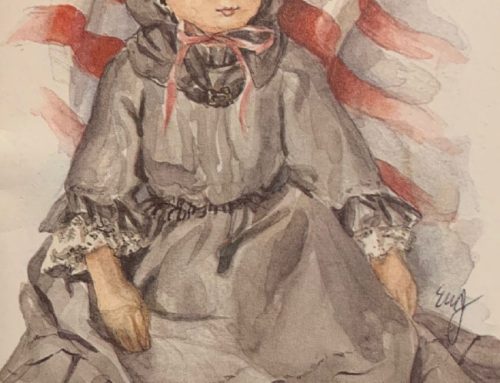”Reading the Stamp Act in King Street, opposite the State House.” Print by James H. Stark (1907)
England asserts the right to tax its American colonies through the Sugar Act in 1764, followed by the Stamp Act (a tax on all forms of paper) in 1765, and the Townshend Acts (a tax on imported glass, lead, paints, paper, and tea) in 1767. The American colonies reject England’s right to tax them, and this causes violent protests and rioting in Boston. The King sends troops to Boston to keep the peace, and one by one, most of the taxes (except for the tax on tea) are repealed. The colonies continue to insist that England has no right to tax them; that only the colonies could levy their own taxes.




